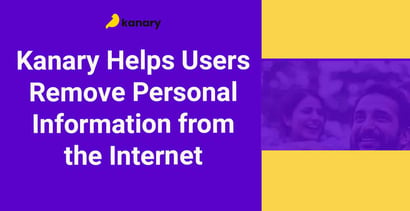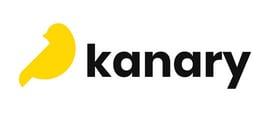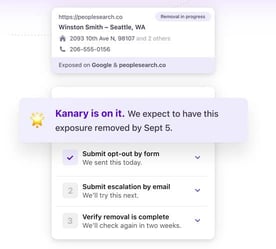
In a Nutshell: Identity theft and fraud are on the rise in the United States. Many individuals who worry about getting scammed use Kanary, a digital platform that scans the internet to remove personal data, including email addresses, phone numbers, and home addresses. Free and paid users turn to Kanary with a variety of privacy objectives, including reducing their likelihood of being targets in credit card scams and ensuring they aren’t easy for fraudsters to find.
Identity theft is a growing problem in the United States. In 2021, 5.7 million Americans reported identity theft, an increase from 4.7 million consumers who said they had faced issues in 2020.
“The number of identity theft scenarios in the U.S. is nearly 3 times higher than in other countries. Reports indicate that nearly 33% of Americans have faced some kind of identity theft attempt in their lives. Experts indicate that this number could increase significantly this year,” reported the National Council on Identity Theft Protection.
In 2021, the most common type of identity theft was credit card fraud, with more than 2.8 million reported cases. In those scams, criminals either access an individual’s registered credit card or sign up for a new card using their personal details.

One way scammers can find enough information to open these accounts is by acquiring data available online, often following breaches. That is one of the reasons Rachel Vrabec founded Kanary, a platform that helps users remove their information from the internet.
Users typically turn to Kanary to remove three important pieces of personal information from the internet: email addresses, phone numbers, and home addresses. Most users who sign up for a Kanary subscription have a specific goal in mind.
For example, they may have been targeted by robocall scams. Criminals often find phone numbers publicly available online, then target individuals who may be digitally unsavvy and susceptible to impersonation fraud.
“The classic, ‘Grandma, I’m in Europe and I need you to wire me $3,000’ scam,” said Rachel.
Alternatively, public figures and influencers may worry about their public safety if their home addresses are posted online. Kanary’s powerful tools can help anyone eliminate that information, and perhaps prevent identity theft or financial fraud that can have a long-term impact.
Launched to Provide More Digital Protection
Rachel said she knew that identity theft and fraud were significant issues after the Cambridge Analytica scandal that broke in 2018. The data analytics company used the data of 50 million Facebook users without their permission.
“[A] company owned by the hedge fund billionaire Robert Mercer … used personal information taken without [authorization] in early 2014 to build a system that could profile individual US voters, in order to target them with personalized political advertisements,” explains Carole Cadwalladr and Emma Graham-Harrison for The Guardian.
Rachel recalls the anger Americans felt that Facebook had allowed a company to access their personal connections without their knowledge or acceptance. In her own job, she was familiar with how Facebook worked behind the scenes, including its social graphing and ad targeting methods, and recognized that individuals needed better tools to protect themselves online.
“I felt like I was in a position to figure out a different type of technology to help people better protect their personal information. Then, hopefully, they could take action to prevent things like identity theft or massive breaches, from having huge negative impacts,” she said.
Rachel said she felt particularly inspired by this mission because an individual’s data doesn’t only affect them, but their entire network. Data is interconnected, and scammers traverse this network to find information about a user or their contacts. The data collection process, dubbed open-source intelligence gathering, is the starting point for every attacker.
“So, family plans are really important to us. You can get started with Kanary and then add on family members at a discount to manage your family’s privacy and security, as well as cleaning up those exposures. I have my parents on my account so I’m removing their exposure along with mine,” Rachel told us.
Powerful Tools to Take Down Personal Data
The Kanary dashboard has two goals. The first is a powerful automation that takes one to two days to check thousands of websites for user information. If a user doesn’t have that much time, the dashboard can also prioritize its searches to remove specific types of information. By breaking down the algorithm’s search into the top risks, users can have peace of mind after only a five-minute scan.

“We’re going to show you a lot of information about you online that may be scary. But what’s the point of that awareness if you’re not going to be able to take action? So, our team is dedicated to making sure that that information is clear in terms of risks,” she said.
Kanary also suggests what a user’s next priorities should be based on the information uncovered online. There are paid and free options for this scan. The free tool, for instance, shows users their online footprint and then helps them take action on their own.
“We only ask people to pay us when we’re actually getting in the weeds and removing things for them,” Rcahel said.
Kanary follows industry standards around data protection and encryption, anduses data centers certified for security and compliance. What’s more, when the team works with customer data, they alias it whenever possible.
In sum, using Kanary doesn’t expose user information to sites that shouldn’t have it. For instance, if a user submits a removal request to a website to remove their data, the use of their personal email for the request further exposes it to untrustworthy sites.
“We work as an intermediary to not share your personal email, we use aliases, so we only have to share a minimum amount of required information to get that site to trust our request and take down the information,” said Rachel.
A Mission-Driven Team Serves Free and Paid Users
Rachel and the team plan new developments for Kanary every week, always developing transparent, useful solutions. One of these solutions has been offering free services and advice for non-subscribers.
This service benefits both free users and the Kanary team, who are inspired by their questions and concerns.
“Since launching our free product last fall, engagement has gone way up, and we’ve gotten a lot of interesting questions. When people engage with our free scan, we have a chance to help them and learn about what they care about, before asking them to pay us,” said Rachel.
Many free users eventually become paid subscribers, especially if their free scan reveals more issues than they would have predicted.
“There’s an a-ha moment when we show you that your footprint is actually 35 sites covering your address, your phone number, your email, your family connections. We’re showing this exposure to people for free and it’s helping them understand what they can do to stay safe,” Rachel told us.
Rachel recommends that individuals who want to clean up their data footprint read Kanary’s blog where the team discusses how to keep Social Security numbers and other personal information offline.
“If you use a certain email to set up your Social Security account or your PIN, don’t use that across untrusted or unnecessary sign ups — don’t buy something on instagram with that same email. In terms of your address information, that’s a little harder — though people often set up a PO box to keep their home address private,” she said.
She also suggests users share as little real or sensitive information as possible on data collection forms. If a clerk asks for your name or phone number at checkout, you can politely decline by saying, “I’d rather not share more personal information with the company.”
“It’s just that additional step of awareness that can help you reduce your exposure,” she told us.




